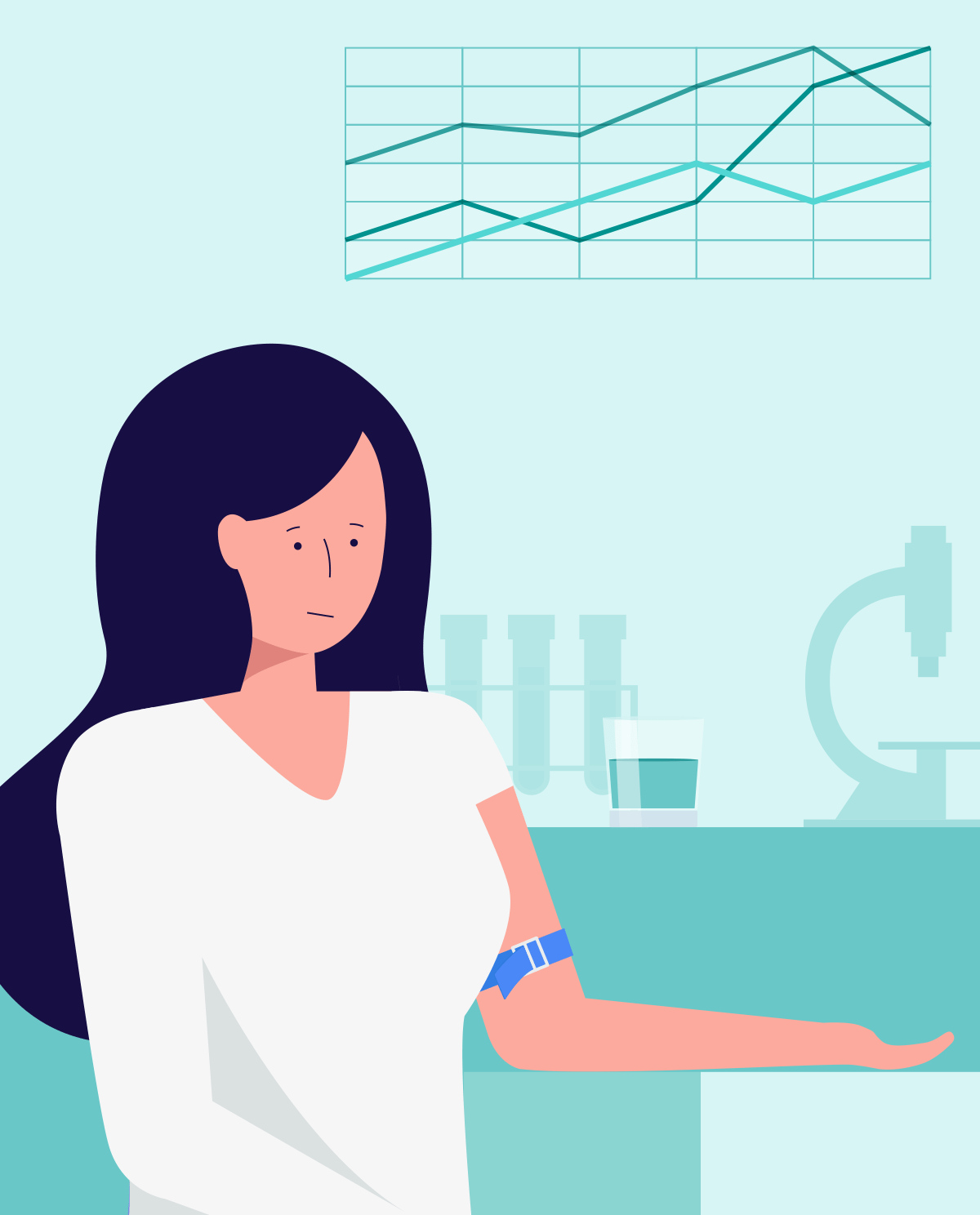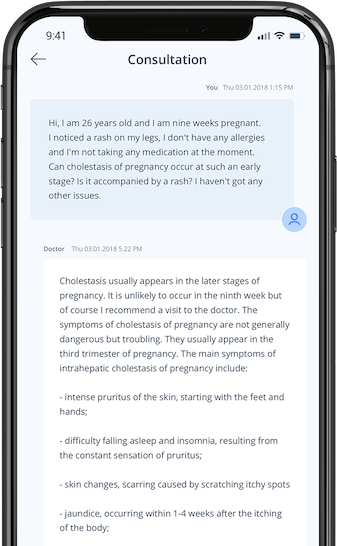Symptoms indicating the possibility of diabetes:
- increased thirst,
- frequent urination,
- weakness and increased drowsiness - especially after a meal,
- frequent occurrence of inflammation of genitourinary organs and purulent lesions on the skin,
- weight loss in a short interval, without a slimming diet.
If you have noticed any of the above symptoms, be sure to report to a doctor or make an occasional glycemic test, i.e. a glucometer test that is carried out regardless of whether you are fasting or after a meal. Read more information about type 2 diabetes.
Check if you are at risk.
In over 50% of patients, the above-mentioned symptoms of hyperglycemia do not occur. Therefore, a test for diabetes should be carried out at least every 3 years for every person over 45 years of age. In addition, regardless of age, fasting blood glucose should be performed every year in people with the following risk groups:
- overweight or obese people (BMI ≥ 25 kg/m ² and/or waist circumference> 80 cm (women) and> 94 cm (men),
- people with diabetes in the family (parents/siblings),
- people with little physical activity every day, e.g. having a sedentary work,
- people from an environmental or ethnic group more likely to have diabetes, such as African Americans and Hispanics,
- who had a pre-diabetic status in the previous study,
- in women with gestational diabetes,
- in women who have given birth to a child> 4 kg,
- in people with hypertension (≥140/90 mm Hg),
- in people with dyslipidemia [HDL cholesterol concentration <40 mg/dl (<1.0 mmol/l) and / or triglycerides> 150 mg/dl (> 1.7 mmol/l)]
- in women with polycystic ovary syndrome,
- in people with cardiovascular disease.
Biochemical tests used in the diagnosis and treatment of diabetes
- Measurement of contingency glucose,
- Fasting glucose measurement,
- Oral glucose tolerance test (OGTT),
- Percentage of glycated hemoglobin - HbA1c,
- Concentration of fructosamine,
- The concentration of glucose and ketone bodies in the urine or their increased concentration in the blood serum,
- Concentration of lactic acid in blood serum,
- Concentration of C peptide in blood serum,
- Insulin test or insulin level,
-
Determination of antinuclear antibodies concentration - serves to confirm the autoimmune aetiology of diabetes and is performed in suspected type 1 diabetes.
- ICA - antinuclear antibodies against various cytoplasmic antigens of β-cells - less and less frequently determined due to the lowest specificity,
- anti-GAD65 - anti-glutamic acid decarboxylase antibodies,
- IA-2, IA-2β - antibodies against tyrosine phosphatases.
- IAA - antibodies against endogenous insulin,
- Zn8 - antibody antibodies.
Algorithm for the diagnosis of diabetes:
-
Determination of contingent glycemia is carried out at any time of the day, regardless of whether you have an empty stomach or not. You can do this test yourself using a glucometer.
- If the result is equal to or exceeds 200 mg/dl (11.1 mmol/l) and symptoms of hyperglycemia (listed at the beginning of the article) occur, be sure to see a family doctor immediately, because there is a high probability that you have diabetes.
- If the result is equal to or exceeds 200 mg/dl (11.1 mmol/l) but you do not have symptoms of hyperglycemia -> go to step 2.
- If the result is from 100 to 199 mg/dl (5.6 - 11.0 mmol/l) -> go to point 2.
-
Fasting blood glucose test - for this test, you must go to the laboratory, remembering not to eat any food or liquids other than a glass of clean water. Medications taken for chronic diseases, such as hypertension or hypothyroidism, should not be discontinued. Normal fasting glucose is 70 - 99 mg/dl (3.9 to 5.5 mmol/l).
- glucose level equal to or above 126 mg/dl (7.0 mmol/l) -> go to point 3.
- glucose level is from 100 to 125 mg/dl (5.6 - 6.9 mmol/l) -> go to point 4.
- glucose level <100 mg.dl (<5.6 mmol/l) -> normal result. Annual control tests for atherosclerosis factors such as lipid levels and fasting glucose may be considered.
-
*Re-labeling of fasting glycaemia.
*if the glucose level is again equal to or above 126 mg/dL (7.0 mmol/L), it's likely diabetes.
-
OGTT - oral glucose tolerance test - involves 2 blood donations and glucose levels. The first intake is done on an empty stomach. The second one in the 120th minute after drinking 75 grams of glucose dissolved in 250 ml of water.
The correct glucose concentration at 120 minutes is below 140 mg/dl (7.8 mmol/l).
- If the result in the 120th minute is equal to or exceeds 200 mg/dl (11.1 mmol/l), you should recognize this as diabetes.
- If the result in the 120th minute ranges from 140 to 199 mg/dl (7.8 - 11.0 mmol/l), you should recognize this as impaired glucose tolerance (IGT), which is pre-diabetes.
- If blood glucose is 100 to 125 mg/dl (5.6 - 6.9 mmol/l) during a fasting blood glucose test and 120 minute result <140 mg/dl (11.1 mmol/l), then this is diagnosed as an impaired fasting glycemia (IFG), which is also a pre-diabetic condition.
- Interna Szczeklika 2018 Handbook of Internal Diseases, Authors: Piotr Gajewski, Andrzej Szczeklik Publisher: Medycyna Praktyczna
- Collective work, Carbohydrate metabolism disorders [in:] Andrzej Wojtczak (ed.), Internal diseases, ed. II amended, Warsaw: Medical Publishing House PZWL, 1995
- http://www.mp.pl
- https://www.mp.pl/pacjent/
- https://cukrzyca.info.pl
- https://www.mp.pl/cukrzyca/leczenie/80136,badania-biochemiczne-wyywane-w-diagnostyce-i-ycenie-cukrzycy
- https://www.mp.pl/interna/chapter/B16.II.13.1.








